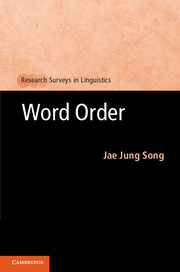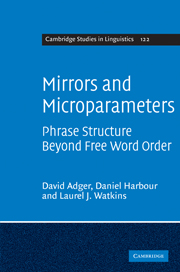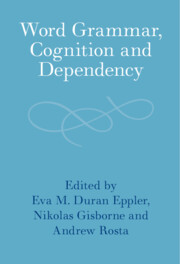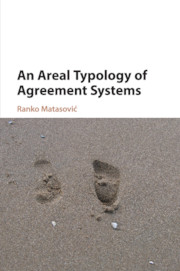Word Order
Word order is one of the major properties on which languages are compared and its study is fundamental to linguistics. This comprehensive survey provides an up-to-date, critical overview of this widely debated topic, exploring and evaluating word order research carried out in four major theoretical frameworks – linguistic typology, generative grammar, optimality theory and processing-based theories. It is the first book to bring these theoretical approaches together in one place and is therefore a one-stop resource covering the current developments in word order research. It explains word order patterns in different languages and at different structural levels and critically evaluates (and where possible, compares) the theoretical assumptions and word order principles used in the different approaches. Also highlighted are issues and problems that require further investigation or remain unresolved. This book will be invaluable to those investigating word order, and researchers and students in syntax, linguistic theory and typology.
- A one-stop resource on the current developments in word order research
- Brings together at least four different theoretical approaches to word order
- Provides a critical discussion of the strengths and weaknesses of each of the selected theoretical approaches
Reviews & endorsements
'An amazing summary and critique of different approaches to word order, typological, grammatical and psycholinguistic. A fabulous resource for students and for all who work on this topic.' Jack Hawkins, University of Cambridge and University of California, Davis
'Song provides a much needed overview of the major approaches to accounting for word order variation in language. His critical, yet highly readable, assessment is a must read for those interested in the topic.' Lindsay J. Whaley, Dartmouth College
Product details
No date availablePaperback
9780521693127
364 pages
228 × 152 × 17 mm
0.58kg
96 b/w illus. 26 tables
Table of Contents
- 1. Word order: setting the scene
- 2. The linguistic-typological approach: empirical validity and explanation
- 3. Entr'acte: historical and conceptual background of generative grammar
- 4. The generative approach: stipulation or deduction
- 5. The optimality-theoretic approach: violable constraints and constraint ranking
- 6. The performance-based approach: efficiency in processing (and production)
- 7. Envoi: whither word order research?






